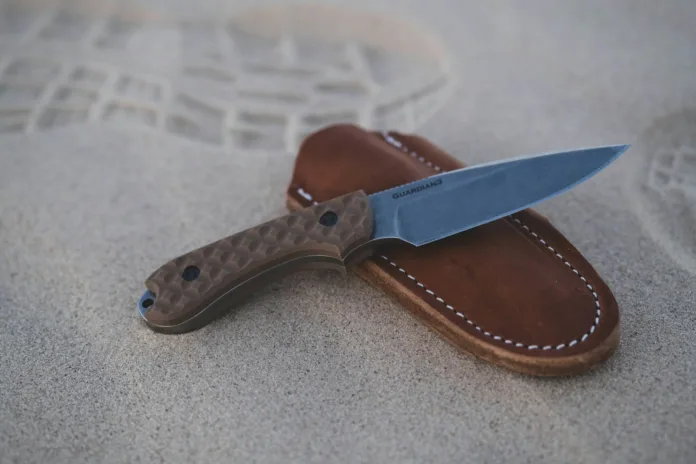A BBC probe reveals children as young as four taking knives into schools across England and Wales
Children as young as four years old have been found carrying knives into school, according to a BBC investigation that has exposed the shocking extent of youth knife crime across England and Wales.
The investigation uncovered 1,304 knife or sharp object offences recorded on school or college premises in 2024 — and at least 10% of those involved primary-aged children. Police reports revealed disturbing cases including a four-year-old in Kent involved in an assault with a knife, and a six-year-old in the West Midlands who brought a flick knife to class, telling staff he planned to harm another pupil.
In another incident, a five-year-old took a 10-inch kitchen knife to school “to show friends,” while a six-year-old was found with a meat cleaver. A five-year-old boy in Cheshire was also reported for bringing a kitchen knife to class. Because the age of criminal responsibility in England and Wales is 10, these children could not face prosecution.
The BBC obtained the figures through Freedom of Information requests to 43 police forces, 41 of which provided data. Nearly two-thirds also supplied age and gender breakdowns, showing that almost 80% of knife-related offences were committed by boys, most of them teenagers.
Embed from Getty Images
The mother of Harvey Willgoose, a 15-year-old boy murdered by a classmate in Sheffield earlier this year, said the findings were “shocking” and called on the government to fund metal detectors — or “knife arches” — in every school and college.
Harvey was stabbed twice in the chest by another pupil at All Saints Catholic High School in February. His mother, Caroline Willgoose, said her son had been afraid to attend school because he knew some students were carrying knives. “Kids are going to school frightened,” she said. “We need to educate them about how devastating carrying a knife can be.”
Police data also showed a rise in the severity of offences, even though the total number of recorded incidents fell slightly from 2023. More cases involved actual violence, rather than simple possession of a blade.
In response to the findings, the Home Office said tackling knife crime was part of its “mission to halve knife crime” and that schools had the power to install knife arches or other security measures “where necessary.” It also cited new measures under Ronan’s Law, which introduces tougher restrictions on online knife sales.
Some schools have already taken matters into their own hands. Beacon Hill Academy in Dudley recently installed a permanent knife arch — an airport-style metal detector — at its entrance. Pupils now pass through the arch each morning, while staff use handheld wands for spot checks.
Sixteen-year-old Evie, a pupil at the school, said the device was a reminder of the risks. “You think about what it’s there for and what children might bring to school,” she said. “It’s scary but also reassuring.”
Headteacher Sukhjot Dhami said the school was acting out of necessity: “Whatever it takes to keep young people safe.” The Dudley Academies Trust, which runs the school, plans to install similar security measures in all its secondary schools due to high local knife crime rates.
The BBC’s investigation also found that sales of knife-detection equipment to schools have surged. Byron Logue, managing director of Interconnective Security Products, said his company sold 35 knife arches to schools in the past year — triple the previous total — alongside more than 100 handheld detectors.
In Sheffield, a group of teenagers told the BBC they had carried knives to school out of fear. One 15-year-old said he paid £30 for a 12-inch blade after receiving threats. “Nowhere’s safe really,” he said.
Gym owner and mentor Trevor Chrouch, who works with local youth to steer them away from violence, said many pupils still hide knives as casually as phones. “They’re scared,” he said. “It’s become normal for some of them.”
The Association of School and College Leaders said such cases remain rare but urged broader action. General secretary Pepe Di’lasio said: “After years of cuts to youth services and community policing, schools are left to handle problems they cannot solve alone. Tackling knife crime requires a whole-society response
